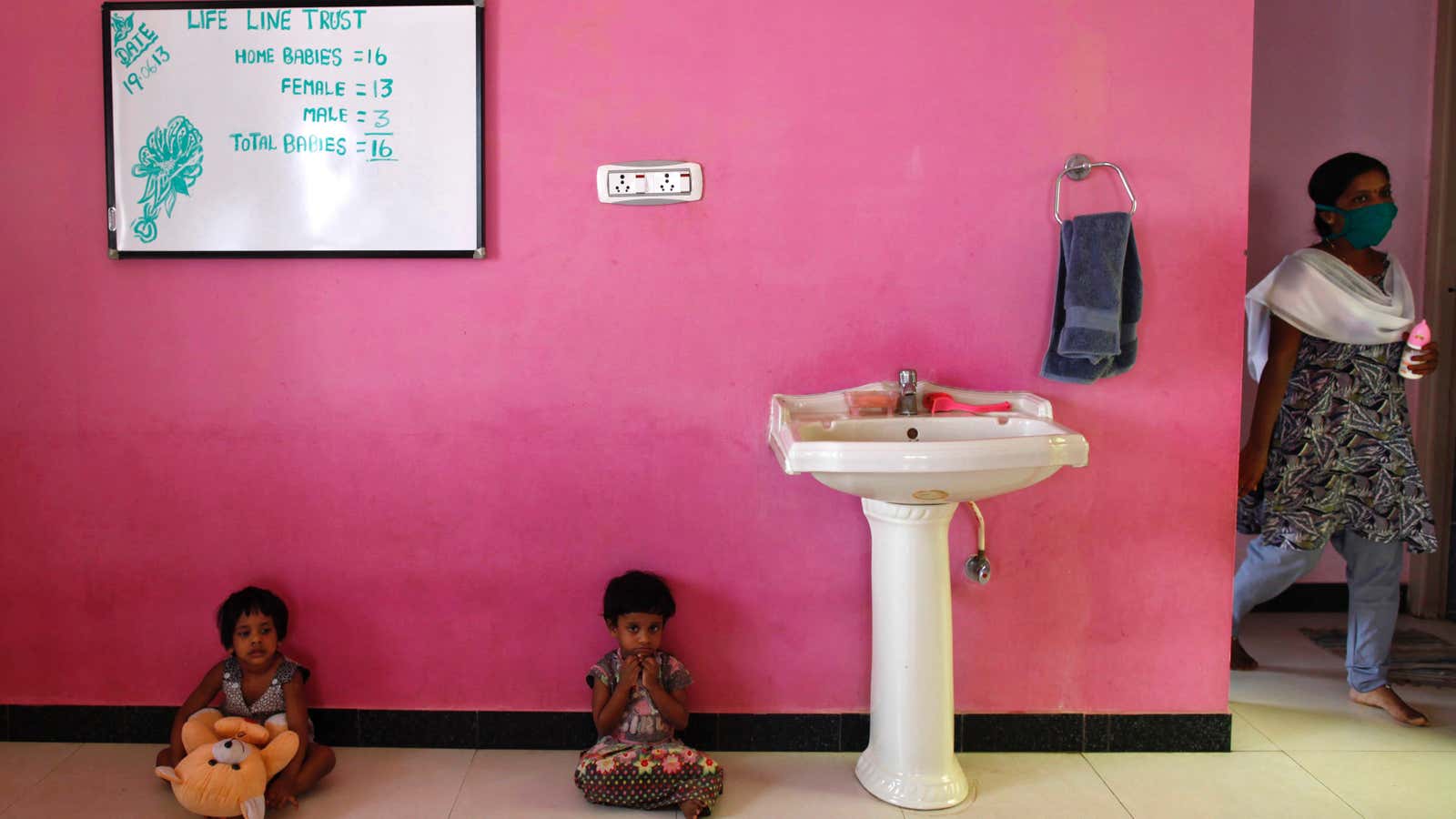Despite the ban on female feticide in India, ads for sex-selection services are still abundant on the web. In a move to end this and help save the girl child, the Indian supreme court has warned Silicon Valley behemoths Google, Yahoo, and Microsoft against hosting ads that violate the country’s ban on prenatal gender testing and sex selective abortion, the Economic Times newspaper reported. The court ordered the three tech giants to stop promoting sex discrimination kits, tools, and clinics.
The companies argued that blocking keywords associated with these ads was not feasible because other related content will be filtered out, too. Justice Mishra, the judge on the case, insisted on banning results that he dubbed as “social evil,” according to Economic Times. He also had a strong message for the tech trio: “You can’t say that you are not technically equipped. If you say you are, get out of the market.”
By the next hearing on July 25, the central government is required to file a memorandum with proposed solutions to stop this “rampant abuse.” The court has instructed the government to meet with all three companies and technical experts to outline steps for blocking these illegal ads before then, the Times of India reported.
Even though the Indian government passed laws against prenatal screening and female feticide with the 1994 Pre-Conception and Pre-Natal Diagnostic Techniques Act, the male to female ratio has barely improved. During the 2001 census, the sex ratio was 933 females for every 1,000 males. By 2011, that number creeped up to just 943.
But even that uptick disguises a worrying decline resulting from an archaic mindset that encourages a preference for boys—the supposed future breadwinners. In 2001, there were only 927 girls age six and younger for every 1,000 boys. A decade later, the government found that the numbers dwindled further: there were only 919 girl children for 1,000 boys.
